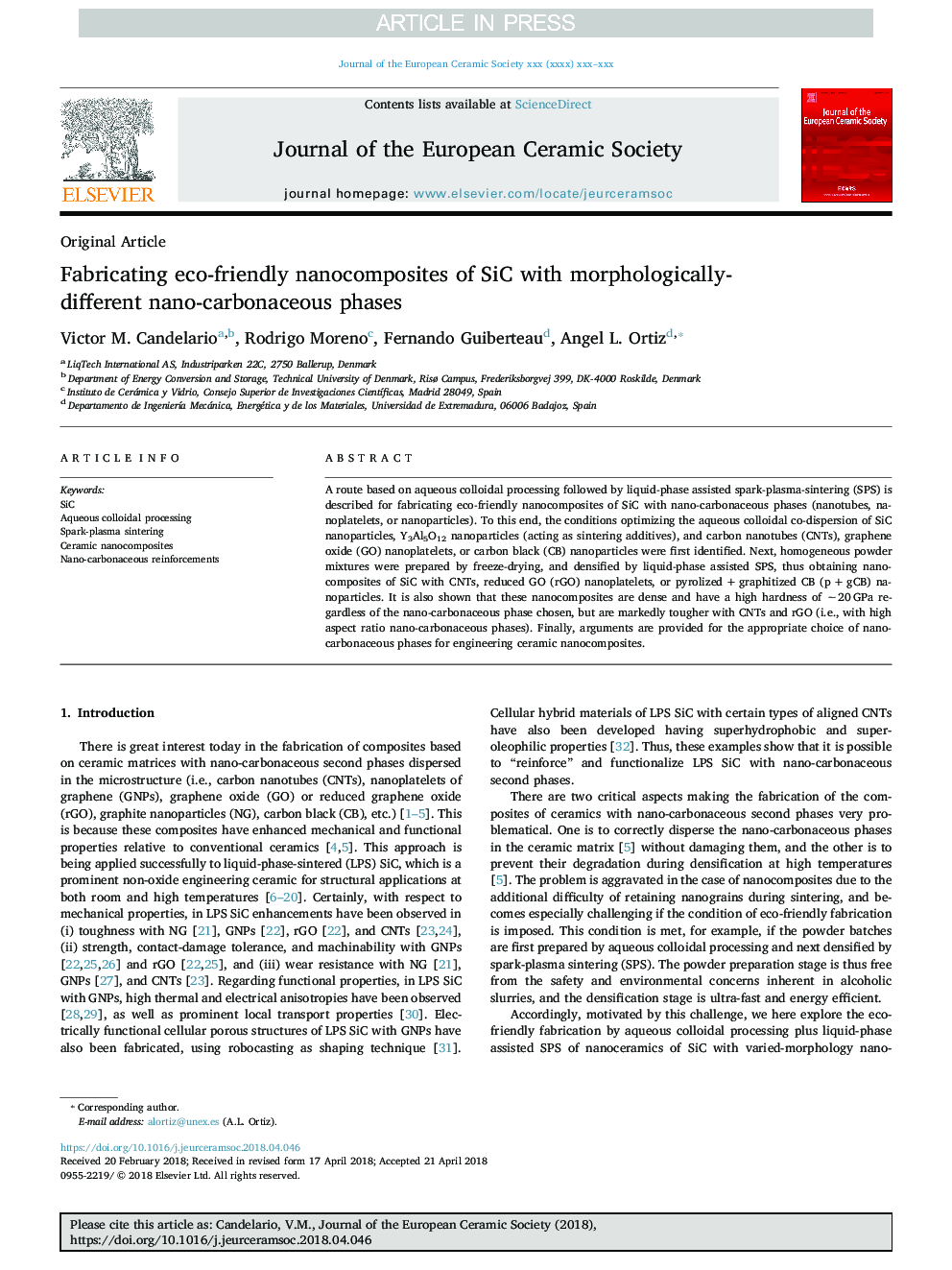| Article ID | Journal | Published Year | Pages | File Type |
|---|---|---|---|---|
| 7897894 | Journal of the European Ceramic Society | 2018 | 7 Pages |
Abstract
A route based on aqueous colloidal processing followed by liquid-phase assisted spark-plasma-sintering (SPS) is described for fabricating eco-friendly nanocomposites of SiC with nano-carbonaceous phases (nanotubes, nanoplatelets, or nanoparticles). To this end, the conditions optimizing the aqueous colloidal co-dispersion of SiC nanoparticles, Y3Al5O12 nanoparticles (acting as sintering additives), and carbon nanotubes (CNTs), graphene oxide (GO) nanoplatelets, or carbon black (CB) nanoparticles were first identified. Next, homogeneous powder mixtures were prepared by freeze-drying, and densified by liquid-phase assisted SPS, thus obtaining nanocomposites of SiC with CNTs, reduced GO (rGO) nanoplatelets, or pyrolizedâ¯+â¯graphitized CB (pâ¯+â¯gCB) nanoparticles. It is also shown that these nanocomposites are dense and have a high hardness of â¼20â¯GPa regardless of the nano-carbonaceous phase chosen, but are markedly tougher with CNTs and rGO (i.e., with high aspect ratio nano-carbonaceous phases). Finally, arguments are provided for the appropriate choice of nano-carbonaceous phases for engineering ceramic nanocomposites.
Related Topics
Physical Sciences and Engineering
Materials Science
Ceramics and Composites
Authors
Victor M. Candelario, Rodrigo Moreno, Fernando Guiberteau, Angel L. Ortiz,
